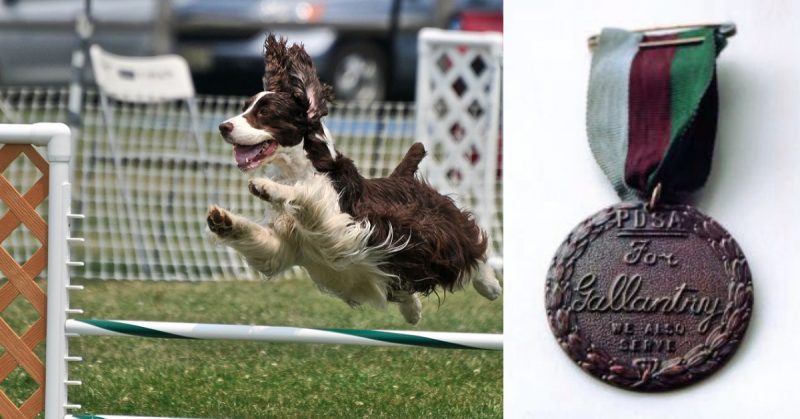For almost as long as human beings have fought wars, they have not been the only participants in battles, even though we generally think of warfare as being an activity confined solely to humans.
It is easy to focus only on human soldiers and human casualties in warfare, and to forget that since the dawn of civilization animals – from dogs to horses to elephants and many others – have also constituted a sizable and important part of every human army.
Even though animals have been fighting in battle alongside humans for thousands of years, only since the twentieth century have our brave animal companions been formally honored for their acts of dedication and bravery in warfare. One such animal was Theo, an English Springer Spaniel who served as a bomb detection dog for the British Army in Afghanistan.
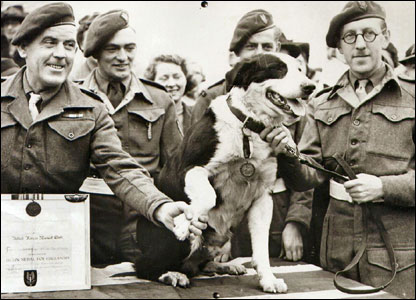
Theo received the PDSA Dickin Medal in recognition for the contribution he made to the war – a war that neither he nor his handler survived, unfortunately. When his handler, Lance Corporal Liam Tasker of the 1st Military Dog Working Regiment, attached to the 1st Irish Guards, was fatally shot by a Taliban sniper, Theo, who was evacuated from the scene and taken back to the British Army base, died a few hours later.
When an autopsy was performed, no conclusive results came of it. Theo was thus presumed to have died of a broken heart and from the shock of seeing his handler killed in front of him.
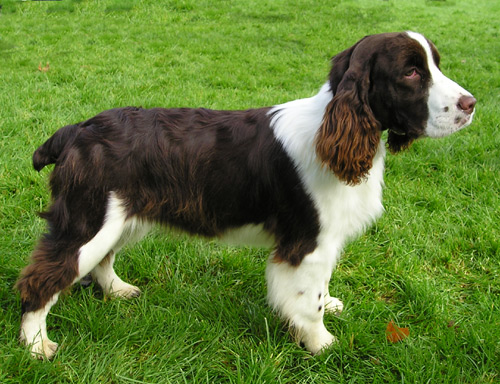
Prior to Tasker and Theo’s deaths, the pair had enjoyed immense success in terms of bomb detection. In fact, Tasker and Theo had been the most successful individual canine bomb detection team up to that point, having discovered fourteen bombs in a five month period.
Their great success in detecting all of those bombs and weapons was, tragically, what led to their deaths. Theo and Lance Corporal Tasker had performed so well that their stay in Afghanistan was extended beyond the usual period.
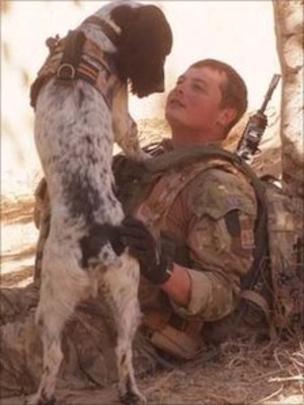
The fact that they had successfully discovered so many bombs in such a short time doubtless saved a great number of Coalition soldiers and Afghani civilians from death or maiming – improvised explosive devices (IEDs) planted by Taliban insurgents have killed a significant number of soldiers and noncombatants in Afghanistan since the start of the war.
Dogs like Theo have proved to be immensely valuable in detecting explosives. Their keen senses of smell, approximately forty times stronger than ours, can pick up the scent of dangerous chemicals far more rapidly and accurately than any human could. Indeed, with their three hundred million smell receptors, compared to our mere five million, the canine nose can pick up smells that we do not even know exist.
Theo, who was born in May 2009, began his term of service for the British Army in September 2010, when he was posted to Afghanistan. That would be his first and, sadly, only tour of duty. He was just two months shy of his second birthday when he died.
Liam Tasker, who was 26 years old when he was killed, had joined the Royal Army Veterinary Corps in 2007, and was an experienced dog trainer and handler. He and Theo, the third dog Tasker had worked with, developed an extremely close bond. From that point on, they were inseparable – and the strength of the bond between them could not even be severed by death.
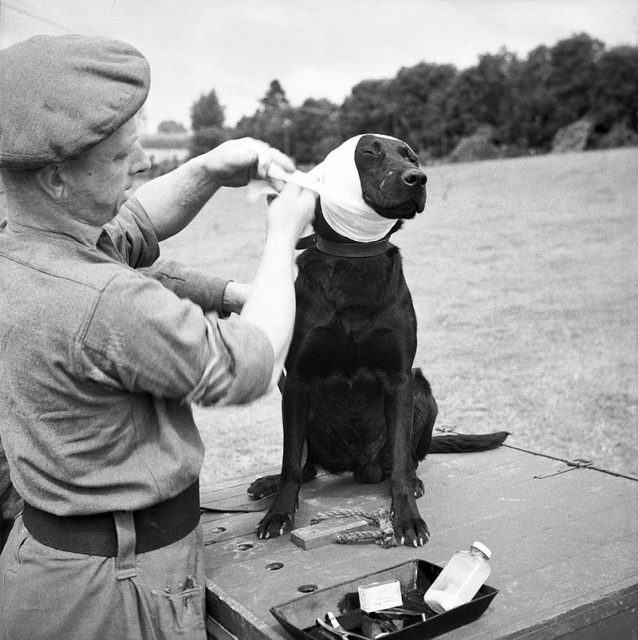
While working in Afghanistan, the fourteen items discovered by Theo and Tasker included not only IEDs, but also hidden stashes of fertilizer and other chemicals used to make bombs, Taliban arms caches, and mechanical parts for making bombs and weapons. By making these crucial discoveries, the pair saved countless military and civilian lives.
After Tasker was killed and Theo died, Theo was posthumously awarded the PDSA’s Dickin Medal – the highest award an animal can receive in the UK, and essentially the animal equivalent of the Victoria Cross. The People’s Dispensary for Sick Animals (PDSA) is a UK-based charity, and the medal is named for the PDSA’s founder, Maria Dickin.
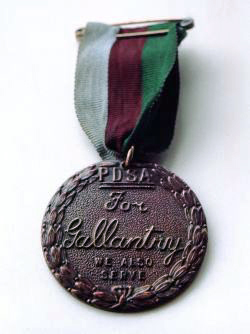
The Dickin Medal, instituted in 1943 to honor the service given by various animals in the Second World War, has since been awarded to sixty-seven animals. Among these are thirty-one dogs (including Theo), thirty-two messenger pigeons (primarily during WWII), three horses, and even a cat.
Read another story from us: Dogs of War: Man’s Best Friends During Wartime + 33 photos
When Lance Corporal Tasker’s body and Theo’s remains were repatriated to England, hundreds of mourners, many with their own dogs in tow, lined the streets to honor and pay their respects to the two fallen heroes. Sergeant Matthew Jones, who had served with Lance Corporal Tasker in Afghanistan, and his bomb detection dog Grace accepted Theo’s Dickin Medal on his behalf when it was awarded on 25 October 2012.
